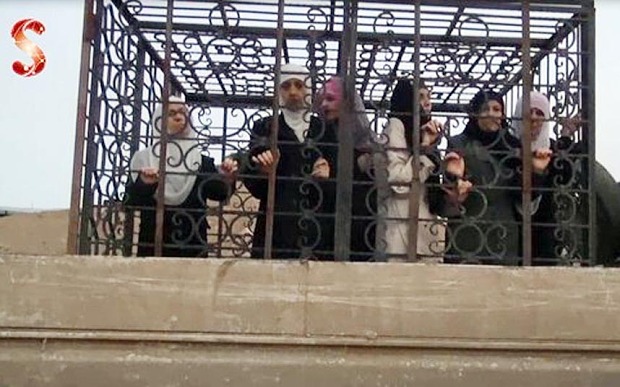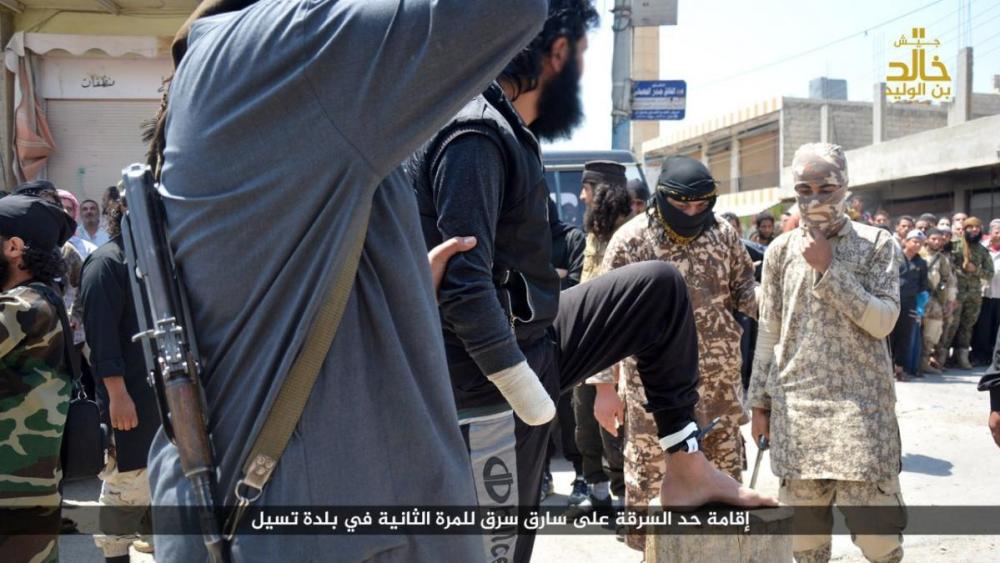
Published here: https://www.alraimedia.com/Home/Details?id=badc81d0-b87a-404f-9108-2a55257eefe5
Damascus by Elijah J. Magnier: @ejmalrai
Eastern Ghouta seems to be a turning point and a most strategic fight for both Moscow and Damascus. Many reasons motivated this alliance to control it and take it away from the jihadists and rebels. On the other hand, such determination implies similar willpower in the opposite camp led by the US and its allies to prevent Ghouta from being liberated. This is the struggle between the two camps: one is determined to regain control of Ghouta and head towards the end of the war in Syria, and the other is equally determined to keep the war going.
These are the main reasons:
1. Ghouta was and still is considered one of the main areas offering air protection to Damascus against any air attack, possibly coming from Israel. The Syrian Air Defence system has maintained several anti-air missile bases in Ghouta for decades as a crossfire point around the Syrian capital.
At the beginning of the war, the Syrian Army demounted its air radar defence system in Ghouta just before it fell into the hands of the rebels and jihadists. The army didn’t manage to retrieve all missiles: some were destroyed by the new occupiers and others were used, managing to hunt down a Syrian jet.
As they recover Ghouta, the Syrian Army is preparing to deploy an advanced anti-air system, adding an important additional defensive element for the capital Damascus, against any air or long-range missile attacks or violations of its air space.

2. Eastern Ghouta is the weakest point in the vicinity of the capital Damascus. Actually, jihadists and rebels bomb the capital daily with dozens of rockets and missiles. This would make it impossible for any presidential or parliamentary elections to take place under such a continuous threat against the population. In fact, as long as Damascus is unsafe, any political proposal offered by Moscow to end the Syrian war would be handicapped.
3. Ending the war in Ghouta means putting an end to the presence of al-Qaeda (Jabhat al-Nusra aka Hay’at tahrir al-Sham) and Ahrar al-Sham (a group combining the Salafi Jihadists Takfiri and the Muslim brotherhood doctrines) around Damascus. This means, these jihadists will be forced to flee Ghouta for Idlib once they understand the battle to be lost. That will definitely create a push for an exchange with the inhabitants of the besieged cities of Fua and Kfarya, surrounded by Jihadists in north Idlib for over three years.
A similar exchange took place in December 2016 when jihadists and civilians were offered free passage from Aleppo in exchange for Fua and Kfarya civilians (of which dozens were killed while they were crossing, by a suicide bomber from Jund al-Aqsa, the organization close to the “Islamic State” (ISIS) which works alongside al-Qaeda in northern Syria).
4. Ending the battle of Al-Ghouta will free tens of thousands of Syrian soldiers so these can go directly to the southern city of Daraa and also liberate the border area with Israel. One of the Syrian Army’s main targets is expected to be the stronghold of “Khaled Bin Al Waleed’s Army” in the Yarmouk basin on the borders with Israel. This is composed of factions previously associated with ISIS (implying identical methods of operation and ideology), repetitively praised by the ISIS official media outlet A’maq and Al-Battar.

Israel supports at least seven Syrian organisations in the Golan region with weapons, equipment, and money, and provides intelligence and unmanned aerial vehicles on their behalf. Not long ago, the Syrian army regained the area of Beit Jinn and got very close to the Golan occupied territory.
Israel Prime Minister Benjamin Netanyahu has frequently requested Russia to keep the Syrian army at least 60 kilometres away from “his” border as a buffer zone. President Vladimir Putin has refused to respond to Netanyahu’s request because he regards the Golan as an occupied territory that belongs to Syria and does not want to interfere in this Arab-Israeli conflict.

Therefore, the Syrian army has become stronger and more resilient today than ever, and will be heading towards the southern front after Ghouta. This expected move may very well provoke the anger of Israel and its ally the US, and thus these will try to impede this process if possible by supporting Al-Ghouta through the “blind eye” of the humanitarian channels, the United Nations (under various flags) and the support of the world mainstream media. They will even go so far as to support an organisation like al-Qaeda based in al-Ghouta.
Actually, the presence of al Qaeda represents a relatively weak US argument (and Russia’s strong one) to liberate al-Ghouta. Before the military campaign against east Damascus, al-Qaeda was estimated to have between 1,500 and 2,000 fighters in this area, while the number of fighters from other organisations was in the range of 8,000 to 10,000 in this same area.
Al-Qaeda, through an expected bluff, has tried to reduce the known number to almost 10% of its actual size (claiming about 200 fighters present in Ghouta). However, the UN Resolution 2401 expressly excludes al-Qaeda (Jahbat al-Nusra or Hay’atTahrir al-Sham) and other jihadi organisations from the ceasefire.

In Ghouta, there are various organisations like “the Army of Islam” in Duma, which carries the Salafist-jihadi ideology. Then comes “Al Qaeda” operating with “Faylaq al-Rahman” and “Fajr al-Ummah” in addition to a smaller number of “Ahrar Sham”. These are spread in the farms located between Duma, Harasta, Joubar, Saqba, Zamaleka and Muhammadiyah.
“Fajr al-Ummah” is an al-Qaeda ally and shares organisation, weapons and men with the jihadists – despite being classified as a “Free Syrian Army”. But all of these groups have announced since 2013 that they are “all Jabhat al-Nusra”, even if the relationship between al-Qaeda and other Syrian groups differs today in the north of Syria from what was happening previously in the first years of war.
There were more than 2.5 million people living in the eastern Ghouta region before 2011. However recent estimates indicate that there are about 200,000 to 300,000 people in the area today. Because of this, Russia has announced that it has opened a humanitarian corridor for the exit of civilians through the crossing of al-Wafedeen. There are Russian surveillance forces, buses, 46 trucks waiting to supply Ghouta inhabitants with food and medicine, and the Syrian Red Crescent awaiting civilians escaping from the jihadist controlled area. But these jihadists are preventing civilians from leaving, imposing a curfew during the five hours allocated for civilian evacuation, to keep pressure on Russia and Syria, who are insisting on the return of al-Ghouta to the control of the central government in Damascus.

The Syrian army, fighting alone without allied forces (due to its recovery and robust combat ideology), has been able to recover a significant portion of Ghouta in recent days (almost 40%), and is confident it will be freed soon. The Syrian army is about to divide Ghouta in two parts and the evacuation to Idlib and the exchange negotiation with Fua and Kfarya inhabitants are expected to begin in the coming days.
The battle of Ghouta, as I write, is indeed a war between Russia and the United States over influence and dominance in the Levant. Russia wants to end the war to prove its ability to bring peace, not only to wage war. And the US is doing everything possible to spoil this pleasure for President Putin. This struggle required a confrontation arena (Syria) where the two superpowers could fight.
One thing is certain: unilateral US dominant rule in the Middle East – whatever the outcome of the war in Syria – is over.
Proof read by: Maurice Brasher
If everyone who reads this reporting, who likes it, helps fund it for as little as 1 Euro/$ will be an effective contributor to its continuity. Thank you.
Comments are closed.